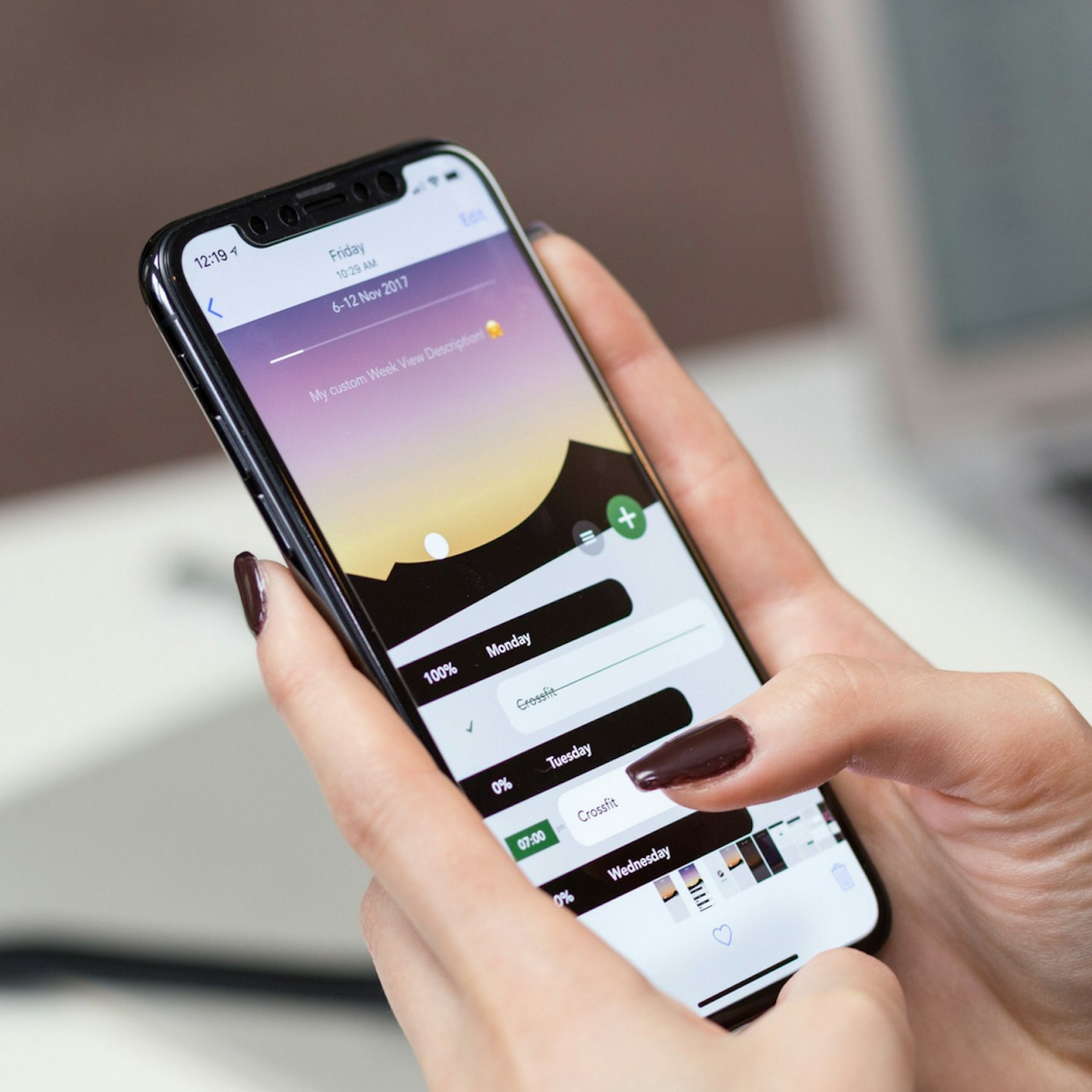Dr HANX: What’s the Deal With Fertility Tracking Apps?
by Dr. Hanx in Culture & Lifestyle on 6th July, 2018

This month our resident Dr Welsh talks about the reliability of fertility tracking apps, in partnership with The Food Medic. Check out the blog here too.
Technology advancements in women’s health are few and far between… until now that is. Current fem-care innovation, in the form of fertility tracking apps is on the scene and rapidly gaining popularity.
Many of us are choosing natural choices in all aspects of our lives, including sexual wellness. Around 40% of women who take the oral contraceptive pill stop it within 12 months, according to a World Health Organisation analysis of data from 25 countries between 1990 and 2009. There is no doubt that we are ditching the hormones and going natural with our choice of contraception and sexual health protection. And this includes natural cycle monitoring. With fertility apps are on the rise, are they reliable and safe? HANX investigates…
So what are fertility apps?
There are almost 100 apps (and rising) out there that allow women to track their fertility with the aim of avoiding or achieving pregnancy.
The Natural Cycles app, one of the biggest and one which is designed to identify the few fertile days each month, has received regulatory approval to market itself as a contraceptive across Europe.
With more and more women relying on their smartphones to track everything they do, including avoiding pregnancy (or getting pregnant for that matter). This has opened the debate around whether they are actually a reliable form of birth control.
How do they work?
These fertility tracking apps monitor your menstrual cycle and highlight times of the month when you’re highly fertile (and more likely to get pregnant) and times when you’re less fertile.
Many apps use daily temperature readings, with factors such as average sperm-survival rates, temperature fluctuations and cycle irregularities to predict which days a woman is fertile.
Other apps use a combination of cervical-fluid observations, menstruation recordings, or algorithms to predict an individual’s pregnancy risk. As you can see, there are a myriad of factors these apps rely on, meaning your risk of falling pregnancy is complex. Ultimately, there are many ways in which the avoidance of pregnancy could fail through using such apps.
What about the days when I am highlighted to be “fertile?”
The days in your cycle such apps highlight to be “fertile days,” mean that you are at high risk of falling pregnant if you have sex on these days. If you want to avoid pregnancy it is super important that you use a condom on these days, or abstinence (i.e.- no sex at all) otherwise you’re putting yourself at risk of pregnancy. Of course, some people use the app when trying to get pregnant, so if this is the case, these days are the days to get down to business!
Many people are choosing fertility apps to avoid hormones and synthetic contraceptives. Yet, the risk of pregnancy is great during these “fertile days,” and therefore condoms are the perfect non- hormonal and safe way to prevent pregnancy on these days.
Can they protect against infections?
No. No. No. Use a condom for this, every time.
What do I need to be aware of?
What people are not doing, is protecting themselves adequately when they are fertile, and understanding that if you’re using fertility tracking apps as a primary form of contraception, then it is not reliable unless used exceptionally well.
What’s more, such tracking cannot protect you from STIs. This means that without using condoms, you’re putting yourself at risk of STIs including HPV.
Don’t get us wrong, they are a fabulous way of knowing your body and your cycle, as well as staying in tune with what’s happening with your hormones and understanding how this affects you. But we need to be educated in the right way about these topics. If women are using natural birth control methods without adequate protection, they are exposing themselves to both STIs and unwanted pregnancy.
What are they good for?
They are fantastic for being aware of your body, understanding your cycle and how it works or changes for you. Education is key, and whether you’re learning about when you ovulate, or how your lifestyle is affecting your cycle, these apps are really great. Clue, an app with over 5 million users worldwide, allows you to track more than just your menstrual cycle. You can input your mood, energy levels, sleep and skin too.
What are they not so good for?
Number one, they do not protect against STIs, so be sure to use protection if this is something you are at risk of. It is also very important to be aware that if you want to avoid pregnancy they are not something that should be recommended alone. The “fertile days’ highlighted by the apps are days which you need to use alternative protection (or not have sex). Equally, if you are not strict with the entries and honest with your inputting of data, you run the risk of unwanted pregnancy.
Shall I give it a go?
In conclusion, make sure you’re clued up and give them a try if you’ve done your research, but make sure you use another form of contraceptive protection at the same time if you’re wanting to avoid pregnancy.
Dr. Hanx
HANX is the first premium male condom designed uniquely with women in mind. We are empowering women around the world to think differently about sexual health. HANX is a brand that empowers women to overcome the fear of judgement and feel confident by protecting them when it comes to sex. Our condoms are made from fair trade, vegan certified and 100% natural latex. What’s more, they are ultra-thin, clean scented and packaged in discreet and luxurious boxes. Founded by childhood friends, Farah and Sarah, who have a shared passion for disrupting the status quo.